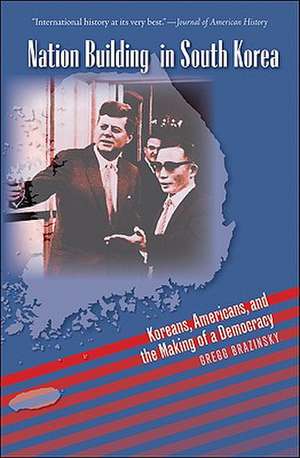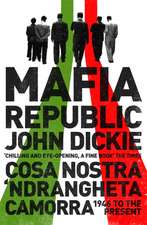Nation Building in South Korea: Koreans, Americans, and the Making of a Democracy: New Cold War History (Paperback)
Autor Gregg Brazinskyen Limba Engleză Paperback – 31 aug 2009
Preț: 269.24 lei
Nou
Puncte Express: 404
Preț estimativ în valută:
51.52€ • 53.93$ • 42.63£
51.52€ • 53.93$ • 42.63£
Carte tipărită la comandă
Livrare economică 05-19 aprilie
Preluare comenzi: 021 569.72.76
Specificații
ISBN-13: 9780807861813
ISBN-10: 0807861812
Pagini: 311
Dimensiuni: 142 x 226 x 23 mm
Greutate: 0.48 kg
Editura: University of North Carolina Press
Seria New Cold War History (Paperback)
ISBN-10: 0807861812
Pagini: 311
Dimensiuni: 142 x 226 x 23 mm
Greutate: 0.48 kg
Editura: University of North Carolina Press
Seria New Cold War History (Paperback)
Notă biografică
brazinsk@gwu.edu
Textul de pe ultima copertă
Presenting a new framework for understanding the complex but vital relationship between legal history and the family, Michael Grossberg analyzes the formation of legal policies on such issues as common law marriage, adoption and rights for illegitimate children.



























